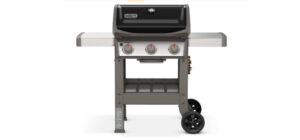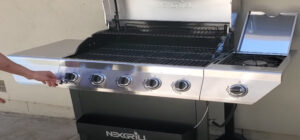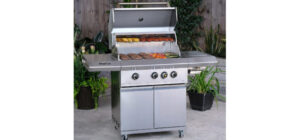As an Amazon Associate I earn from qualifying purchases.
Dutch ovens are a kitchen essential, providing versatility in cooking various dishes. When it comes to choosing between aluminum and cast iron Dutch ovens, there are several factors to consider. Let’s dive into the comparison to help you make an informed decision for your cooking needs.

Introduction
Aluminum and cast iron Dutch ovens are popular choices, each with its unique features and benefits. Understanding the differences will assist you in selecting the right cookware for your kitchen.
When it comes to choosing the perfect Dutch oven, you’ve got two main contenders: aluminum and cast iron. Both have their own strengths and weaknesses, and depending on your cooking style, one may be a better fit than the other. So, which should you choose? Let’s dive deep into the world of Dutch ovens and find out!
What is a Dutch Oven?
A Dutch oven is a thick-walled pot, traditionally made from cast iron, but available in other materials like aluminum. It features a snug-fitting lid that traps heat and moisture, making it ideal for slow-cooking, braising, baking, and even frying. Its versatility has made it a staple in many kitchens.
Heat Conductivity
Aluminum excels in heat conductivity, heating up quickly and distributing heat evenly across the cooking surface. Cast iron, while slower to heat up, retains and distributes heat more evenly over time, making it ideal for slow-cooking and braising.
Heat Retention
Cast iron’s superior heat retention is one of its standout features. Once heated, it stays hot for an extended period, keeping your dishes warm even after removing them from the heat source. Aluminum, while efficient in conductivity, may not retain heat as effectively.
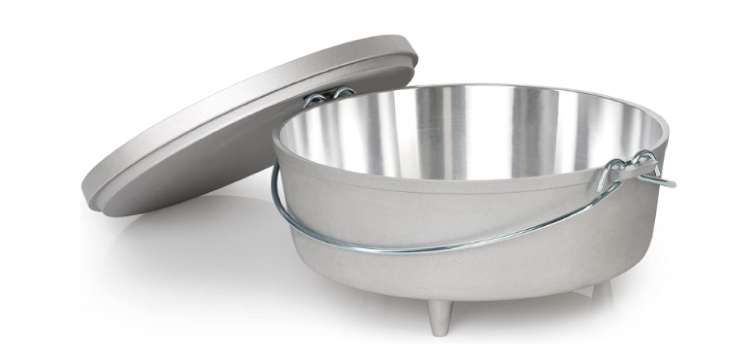
Durability and Longevity
Cast iron Dutch ovens are renowned for their durability and longevity, often passed down through generations. With proper care and seasoning, cast iron cookware can last a lifetime. Aluminum, while durable, may not have the same longevity.
Seasoning and Maintenance
Cast iron Dutch ovens require seasoning to create a natural non-stick surface and prevent rusting. Aluminum, being non-porous, doesn’t require seasoning but may require specific cleaning methods to avoid scratching the surface.
Versatility in Cooking
Both aluminum and cast iron Dutch ovens offer versatility in cooking. Aluminum is excellent for quick, even heating, suitable for a range of dishes. Cast iron excels in slow-cooking, baking, and frying, providing a wide array of cooking options.
Price Consideration
Aluminum Dutch ovens are generally more affordable than their cast iron counterparts. If you’re on a budget, aluminum provides a cost-effective option without compromising on performance.
Design and Aesthetics
Cast iron Dutch ovens often boast classic, timeless designs, contributing to their aesthetic appeal. Aluminum Dutch ovens may come in sleek and modern designs, offering a different aesthetic for your kitchen.
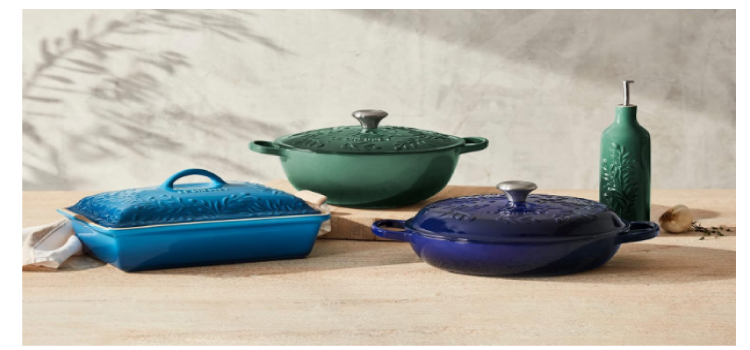
Aluminum Dutch Ovens: An Overview
Aluminum Dutch ovens are lighter, easier to handle, and typically more affordable. They heat up quickly and distribute heat relatively evenly. This makes them a good choice for tasks where you need to adjust heat quickly, like simmering sauces or cooking delicate foods.
Pros:
- Lightweight and easy to handle.
- Heats up quickly and evenly.
- Generally less expensive.
- Resistant to rust and corrosion.
- Suitable for low to medium-heat cooking.
Cons:
- Less heat retention compared to cast iron.
- Can warp over time if exposed to very high temperatures.
- Not ideal for high-heat searing or slow cooking.
Cast Iron Dutch Ovens: An Overview
Cast iron Dutch ovens are heavy-duty and well-known for their ability to retain and distribute heat. They are ideal for slow-cooking and dishes that require even cooking over a long period. With the right care, a cast iron Dutch oven can endure for many generations.
Pros:
- Superior heat retention and even distribution.
- Highly durable and long-lasting.
- Ideal for high-heat searing, slow-cooking, and baking.
- Naturally non-stick when properly seasoned.
- It can be used on a variety of heat sources, from stovetops to open campfires.
Cons:
- Heavier and harder to handle.
- Requires regular seasoning to maintain non-stick properties.
- Can rust if not properly cared for.
- More expensive than aluminum options.
Comparison: Aluminum vs. Cast Iron Dutch Ovens
Durability
Cast iron is renowned for its durability and can last for decades with proper care. Aluminum, while resistant to rust, is prone to warping over time, especially when exposed to high temperatures or uneven heating.
Heat Retention and Distribution
Cast iron excels in heat retention, making it ideal for slow-cooking and dishes requiring consistent temperatures. Aluminum, while it heats up faster, doesn’t hold heat as well, which may lead to more frequent temperature adjustments.
Weight and Portability
Aluminum Dutch ovens are significantly lighter, making them easier to handle, especially for those who struggle with heavy cookware. Cast iron is heavier and bulkier, which can be cumbersome for some users but offers a sturdy cooking experience.
Cooking Versatility
Cast iron Dutch ovens can handle almost any cooking scenario, from stovetop to oven to campfire. Aluminum Dutch ovens are more limited in high-heat situations and may not perform as well in an oven or over an open flame.
Cost and Affordability
Aluminum Dutch ovens are generally more affordable than cast iron options, making them an attractive choice for those on a budget. Cast iron, while pricier, offers a longer lifespan and versatility, which can justify the investment for many.
Which is Better for You?
Choosing between an aluminum and cast iron Dutch oven depends largely on your cooking needs and personal preferences. If you’re looking for something lightweight, easy to maintain, and good for everyday cooking, an aluminum Dutch oven might be your best bet. If you value durability, heat retention, and versatility, a cast iron Dutch oven could be the way to go.
Care and Maintenance Tips
- Aluminum Dutch Ovens: Wash with mild soap and water; avoid abrasive cleaners. Store in a dry place to prevent discoloration.
- Cast Iron Dutch Ovens: Season regularly to maintain the non-stick surface. Avoid soaking in water and always dry thoroughly after washing to prevent rust.
Environmental Impact
Both materials have their pros and cons when it comes to the environment. Cast iron is highly durable and can last for generations, reducing the need for replacements. Aluminum, however, is lighter and easier to recycle but requires significant energy to produce.
Popular Brands and Models
- Aluminum Dutch Ovens: Look for brands like Calphalon and Cuisinart, which offer quality aluminum Dutch ovens.
- Cast Iron Dutch Ovens: Lodge and Le Creuset are well-known for their reliable cast iron options.
User Experience
User experiences vary based on personal preferences and cooking styles. Some may appreciate the lightweight nature of aluminum, while others enjoy the traditional and sturdy feel of cast iron.
Brand Reputation
Well-known brands in the cookware industry produce both aluminum and cast iron Dutch ovens. Researching and considering brand reputation can help you make a more informed decision.
Consumer Preferences
Consumer preferences play a significant role in the choice between aluminum and cast iron. Whether it’s the convenience of lightweight aluminum or the timeless appeal of cast iron, understanding your preferences is key.
Tips for Cooking
- For aluminum: Quick pre-heating is ideal for efficient cooking. Avoid high heat to prevent warping.
- For cast iron: Preheat slowly for even heating. Regular seasoning is essential for optimal performance.
Customer Reviews and Feedback
Many users appreciate the ease of handling and quick heating of aluminum Dutch ovens, while others swear by the durability and even cooking of cast iron. Ultimately, it comes down to what matters most to you in the kitchen.
Conclusion
Aluminum and cast iron Dutch ovens each provide distinct advantages that suit various cooking styles and preferences. If you want a pot that heats quickly, is lightweight, and easy to handle, go for aluminum. If you’re looking for something that offers unparalleled heat retention and longevity, cast iron is the choice for you.
FAQs
- Which is better for baking: aluminum or cast iron?
Thanks to its excellent heat retention, cast iron is typically the better choice for baking. - Can I use both on an induction cooktop?
Yes, but only if the aluminum Dutch oven has a magnetic base. Cast iron works naturally with induction. - What are the best ways to keep food from sticking to my Dutch oven?
Ensure proper seasoning for cast iron and use sufficient oil or fat when cooking.
- Are aluminum Dutch ovens safe for cooking?
Yes, they are safe for most cooking purposes, but avoid using them at very high temperatures. - Do cast iron Dutch ovens require seasoning?
Yes, regular seasoning is necessary to maintain their non-stick properties and prevent rust.
As an Amazon Associate I earn from qualifying purchases.

